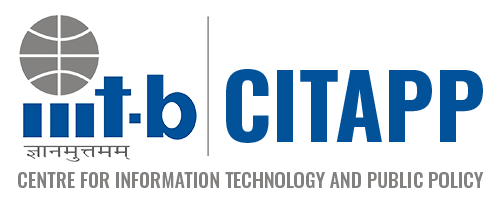Monday, August 13th, at 11:15 am
Location: IIIT Bangalore, Room 310
Abstract: This presentation discusses some contemporary gendered subjectivities that emerge through a variety of social media domesticities as well as social media activisms. The binary of ghar/bahir is used to frame the shifting affective and discursive terrains of sometimes distinctly and other times blurred and overlapping domesticities and activisms. Noting how each of these constructs – ghar and bahir – have embedded contradictions, struggles, complicities and hierarchies – I examine speech clusters, interactive events, visual stagings and discursive instances within these digital circuits and networks formed by south Asian identified women.
Digital ghars and bahirs are not one static locatable site or place online – but rather these are clusters of moving interactions and defined as either ghar or bahir partly through ideologies manifested in such interactive clusters/spaces. Central to my examination of these subjectivities is what has been described as “women’s labor” (what Karl Marx refers to as reproductive labor but especially the cycle production-reproduction as described by Leopoldina Fortunati). Affective circuits are built through various forms of such labor (reproductive and productive) on behalf of immediate and extended family; on behalf of empowerment of the “subaltern”; on behalf of entrepreneurial ventures and so on. Digital domesticity in South Asian contexts implicitly and explicitly, intentionally and unintentionally mostly works to reproduce caste, nation, religious, regional spaces – even if in a much more dynamic , diverse and complex interactive manner than in the websites of the 1990s and early 2000. However, gendered digital publics that I refer to as “digital bahirs” or digital streets rupture and tear apart received understandings – even as they sometimes remain problematic, incomplete, scattered and contentious because of extreme binarizing interaction that the very design of the interface when these digital bahir engagements are viewed apart from the larger spacio-temporal continuum of the struggle/issue at hand.
Bio: Radhika Gajjala (PhD, University of Pittsburgh, 1998) is a Professor of Media and Communication and of American Culture Studies at Bowling Green State University, USA. She was Fulbright Professor in Digital Culture at University of Bergen, Norway for the year 2015-2016 and has continued collaborations through affiliation with the Western Norway Research Institute in Sogndal, Norway. In 2012, she was Senior Fulbright scholar at Soegijapranata Catholic University and has continued collaborating with faculty their in the examination of Indonesian craft communities/entrepreneurship. She is also co-editor of “ADA: Journal of Gender and New Media” (2012 to present). She has researched non-profit organizations and also engaged in community partnerships with biracial communities in the U.S. Her work that engages themes related to globalization, digital labor, feminism and social justice. Her experience in critical feminist (digital and ethnographic) research methods, in building digitally mediated networks (since 1995) and also research in craft communities internationally has led to her being invited to participate in various projects internationally as advisor, mentor and collaborator.
Published books include “Online Philanthropy: Connecting, microfinancing, and gaming for change”(Lexington Press, 2017).Lexington “Cyberculture and the Subaltern” (Lexington Press, 2012) and “Cyberselves: Feminist Ethnographies of South Asian Women” (Altamira, 2004). Co-edited collections include “Cyberfeminism 2.0” (2012), “Global Media Culture and Identity” (2011), “South Asian Technospaces”(2008) and “Webbing Cyberfeminist Practice” (2008). She is currently working on book length projects on “Digital Diasporas: Labor and Affect in Gendered Indian Digital Publics”(forthcoming 2019): Rowman and Littlefield International, UK. Gajjala’s administrative experience includes being Graduate coordinator of Media and Communication (2006-2008) director of Women’s Studies (2008-2009) and director of American Culture studies programs at BGSU (2010-2012 and 2016-2017).
